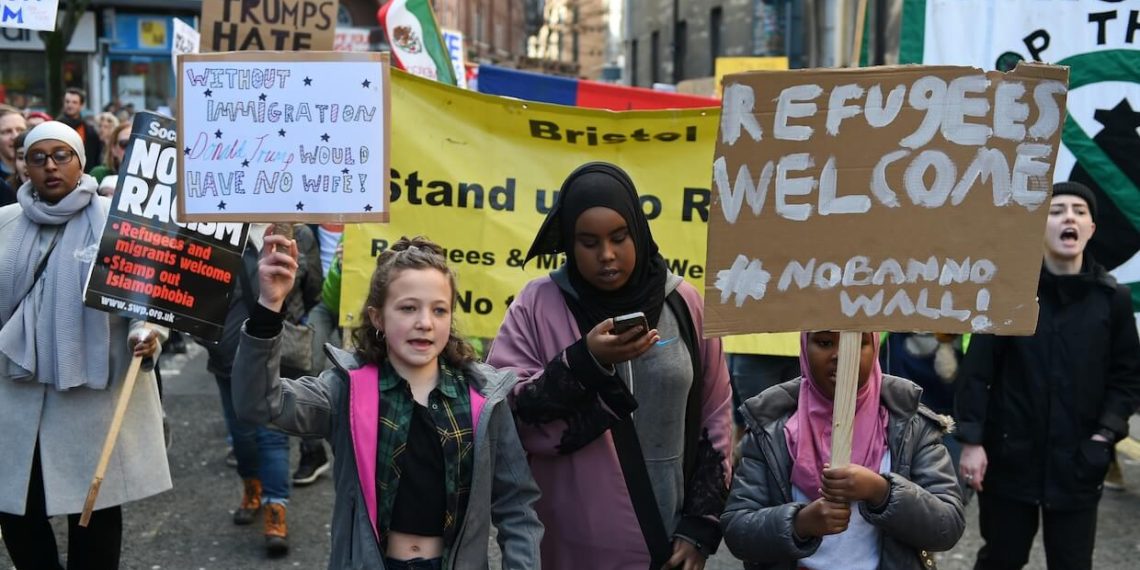Please cite as:
Wathtuwa-Durayalage, Sudeshika. (2025). “Impact of Civilizational Populism on Intergroup Emotions, Social Cohesion, and Civility in the UK.” Journal of Populism Studies (JPS). June 11, 2025. https://doi.org/10.55271/JPS000115
Abstract
This study investigates the impact of civilizational populism on intergroup emotions, social cohesion, and civility in the United Kingdom using quantitative analysis of British Social Attitudes Survey (BSA) 2021 data. The findings reveal significant correlations between exposure to populist rhetoric and heightened negative emotions, such as fear and anger, toward ethnoreligious and political minorities (r = 0.56). While political affiliation demonstrates a weaker direct influence (r = 0.14), perceptions of migration as culturally and economically beneficial are strongly associated with higher social cohesion (r = 0.69). Minority groups report elevated levels of exclusion and fear, yet national pride correlates with inclusive attitudes in some cases (r = -0.64, with prejudicial views). Civil society organizations play a critical role in mitigating divisive effects by fostering inclusivity and dialogue. These insights inform strategies to counteract the polarizing impacts of civilizational populism, emphasizing the importance of inclusive narratives and policy interventions to enhance social cohesion in diverse societies. The study’s limitations include reliance on secondary data and challenges in establishing causality, highlighting the need for further research using more direct measures of populism and contemporary datasets. Despite these constraints, the findings contribute empirical evidence to the growing literature on the social and emotional consequences of populism, offering a foundation for policies aimed at promoting harmony and reducing polarization in the UK.
Keywords: Civilizational populism, intergroup emotions, social cohesion, civility
By Sudeshika Wathtuwa-Durayalage
Introduction
This study investigates the influence of civilisational populism on intergroup emotions and attitudes towards ethnoreligious and political minorities in the UK. Specifically, it examines the effects of civilisational populism on social cohesion and civility at the local and national levels, and how individuals and communities respond to and resist populist rhetoric. Central to this inquiry is an exploration of the emotional responses elicited by civilisational populism, such as fear, anger, and resentment, and the strategies civil society organisations employ to mitigate its divisive effects.
While there has been extensive research on the general impact of populism on political attitudes and intergroup relations, there is a significant gap in understanding the specific emotional and social consequences of civilisational populism, particularly in the UK context. Civilisational populism differs from other forms of populism by framing political discourse regarding civilisational identities and perceived existential threats to cultural values and ways of life. Current literature inadequately addresses how this form of populism shapes intergroup emotions, such as fear and resentment, and its implications for social cohesion. Furthermore, there is a paucity of research on how communities and civil society organisations respond to civilisational populism, especially in fostering social cohesion and civility in the context of rising divisive rhetoric.
This research is significant as it aims to provide a nuanced understanding of how civilisational populism influences emotional and social dynamics within ethnoreligious and political groups in the UK. By focusing on emotional responses and community reactions to civilisational populism, this study offers critical insights into how populist rhetoric shapes social cohesion and civility in diverse societies. Additionally, identifying the coping mechanisms and resistance strategies employed by communities will contribute to policy and intervention strategies aimed at mitigating the divisive impacts of populism. Ultimately, this research could inform efforts to strengthen social cohesion and civility in increasingly pluralistic and politically polarised societies.
The research questions are as follows:
How does civilisational populism influence intergroup emotions and attitudes toward ethnoreligious and political minorities in the UK?
What are the effects of civilisational populism on social cohesion and civility in local and national contexts?
How do individuals and communities respond to populist rhetoric, and what coping mechanisms or resistance strategies are employed to maintain social cohesion?
There are three research objectives aligned with this research, as follows:
To explore how civilisational populism impacts the emotional responses (e.g., fear, anger, and resentment) of different ethnoreligious and political groups in the UK.
To analyse the relationship between civilisational populism and social cohesion, focusing on the extent to which it promotes or undermines community trust and cooperation.
To identify the strategies utilised by civil society organisations and communities to counteract the divisive effects of populism and foster civility.
Civilisational populism, as defined in this research, uniquely frames political discourse around existential threats to cultural values, in contrast to general populism that targets the elite. This study explores its significant emotional and societal impacts on social cohesion, particularly among ethnoreligious and political minorities. The central argument posits that civilisational populism exacerbates fear, anger, and resentment toward minority groups, undermining local and national social cohesion. Civil society and communities can mitigate these divisive impacts by fostering civility and employing coping mechanisms. Through a robust quantitative approach utilising British Social Attitudes Survey (BSA) data, this research seeks to empirically establish correlations between populist rhetoric and intergroup emotions.


